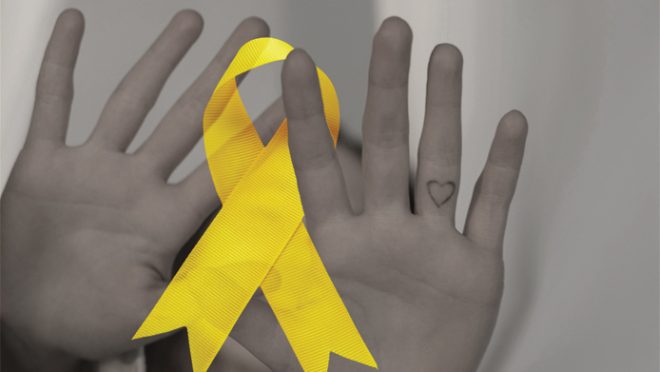World Suicide Prevention Day: What to do if you have suicidal thoughts?
World Suicide Prevention Day: What to do if you have suicidal thoughts?

10 September is World Suicide Prevention Day.
According to the World Health Organization (WHO), over 720,000 people die by suicide each year; that makes it the third leading cause of death among 15 to 29-year-olds.
The statistics are sobering: every 40 seconds, one suicide occurs, amounting to 3,000 deaths per day.
In the time it takes to read this article, approximately eight more people will have taken their own lives. And for every suicide, countless others attempt it.
Students are among the most vulnerable, with the non-government organisation Aachol Foundation revealing in a survey that at least 513 students in Bangladesh took their own lives in 2023.
This includes 227 school students, 140 college students, 98 university students, and 48 madrasa students.
Why, must we ask, are student suicides on the rise, despite the availability of psychiatric help? The survey finds: emotional distress, relationship failures, mental health struggles, sexual harassment, and humiliation are some of the leading causes. The situation is deeply troubling, as suicide is never a solution.
We spoke with psychiatrist Dr Muntasir Khan to gain insights into this issue. He emphasised, “Suicide is a psychosocial disorder. It is never a solution to any problem; rather, it leads to the tragic loss of many promising young lives.”
Recognising suicidal tendencies
Dr Muntasir highlighted the following warning signs:
– A history of previous suicide attempts
– Threats of suicide or frequent expressions of despair
– Self-harm or engaging in risky, destructive behaviour
– Feelings of hopelessness or pessimism about the future
– Withdrawal from social interactions, preferring isolation
– Feelings of worthlessness
– Persistent thoughts about death or wondering if it would be better not to exist
What to do if you have suicidal thoughts
Dr Muntasir explained, “Suicidal thoughts may stem from a chemical imbalance in the brain, variations in blood components, or a lack of coping skills for mental stress.” He continued, “While it may seem like there’s no way out, there are always countless alternatives. Time changes everything, and situations evolve.”
Here are some steps for anyone feeling suicidal:
– Talk to someone you trust, such as a close friend, family member, or support hotline.
– Share your feelings openly.
– Avoid impulsive actions—if you tend to act without thinking, stay away from medication, sharp objects, and being alone.
– Steer clear of media coverage on suicides, as it can trigger your own thoughts.
– Seek professional help from a psychiatrist or psychologist. Government hospitals, such as the National Institute of Mental Health in Sher-e-Bangla Nagar, Dhaka, offer almost free consultations.
– Focus on the present and try not to dwell on the future for now.
How to support someone with suicidal thoughts
– Identify warning signs within your circle, whether at home, school, or work.
– Show empathy and understanding.
– Avoid giving advice or making harsh comments—remember, the behaviour isn’t intentional.
– Spend time with them, and if possible, help resolve their problems.
– Keep a close watch and remove any dangerous objects from their surroundings.
– Encourage them to feel valued and important.
– Help them seek professional help from a mental health specialist.
When to seek professional help
If someone is:
– Attempting suicide, planning it, or making continuous threats
– Engaging in self-harm or acting impulsively
– Showing signs of depression (e.g., feeling down, losing interest in activities, abnormal changes in sleep or appetite, decreased concentration, feelings of worthlessness or hopelessness, or suicidal tendencies)
– Struggling with substance abuse or severe mental illness
– Finding it difficult to manage stress or control their mood
A psychiatrist will tailor the treatment approach based on factors such as the nature and severity of the disorder, financial situation, age, gender, environment, and patient preferences. Modern treatments may include medication, psychotherapy, electroconvulsive therapy, or transcranial magnetic stimulation (TMS).
Mental health advice for students
– Set meaningful goals and ensure your learning benefits others.
– Follow a routine and limit screen time. Give yourself time for activities like meditation or exercise.
– Pursue diverse interests alongside your studies, such as learning new skills.
– Choose your friends wisely and consider failure as a learning experience.
– Stay calm and patient when dealing with criticism from parents, teachers, or peers—they may not always know the best way to express their concerns.
– Accept that your mind, like the weather, changes—you don’t always have to feel happy.
– Work on improving your weaknesses through regular practice.
– Think carefully before making decisions, weighing the pros and cons.
– If suicidal thoughts arise, confide in someone you trust and seek professional help.
In his concluding remarks, Dr Muntasir said, “The path to preventing suicide lies in global, national, social, familial, and personal responsibility, as well as raising overall awareness.”
Let us work together to ensure that no one feels they are without hope.
There are a few suicide prevention hotlines you can seek help from if in need. One of the most notable ones is Kaan Pete Roi: 09612-119911


